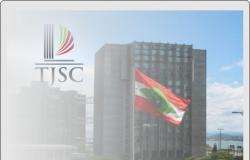Launched last Monday (22), Desenrola Pequenos Negócios, which will allow the renegotiation of debts of small businesses and individual microentrepreneurs (MEI), had its rules regulated this Friday (26). The Ministry of Finance published an ordinance that defines the participation of banks in renegotiations.
Debts due for more than 90 days on the program launch date, last Monday, will be renegotiated. There will be no limits on the amount of debt or maximum delay time. According to the Ministry of Finance, this encourages the granting of higher discounts for older and higher-value debts.
The version of Desenrola for micro and small companies is one of the four axes of the Believe Program, which aims to expand access to credit and stimulate the economy. Although the renegotiation theoretically came into force on Tuesday (23), the day the provisional measure was published, smaller businesses were still unable to request refinancing because the rules were not regulated.
Once the ordinance is published, financial institutions can make the final operational adjustments to begin debt renegotiations. The forecast is that the renegotiations of Desenrola Pequenas Empresas will effectively begin next week.
Tax credit
The Desenrola Pequenos Negócios program offers tax incentives for banks and financial institutions to renegotiate small business debts. Institutions that join the program will be entitled to a presumptive tax credit. There will be no cost to the government this year because the calculation of presumed credit can be carried out between 2025 and 2029.
Through presumed credit, financial institutions have the right to deduct future losses from taxes in any quarter. The ordinance also regulated the calculation of these credits.
According to the Ministry of Finance, the tax credit will be calculated based on the lower value between the gross accounting balance of renegotiated credit operations and the accounting balance of credits arising from temporary differences. Temporary differences are expenses or accounting losses that cannot yet be deducted from Corporate Income Tax (IRPJ) and Social Contribution on Net Profit (CSLL), but which can be used as a tax credit in the future, which is permitted by tax legislation.
The granting of tax credits leverages banks’ capital to grant new loans. This incentive does not generate any expenses for 2024, and in the coming years the maximum estimated cost in tax waivers is very low, in the order of R$18 million in 2025, only R$3 million in 2026, and at no cost to the government in 2027.






